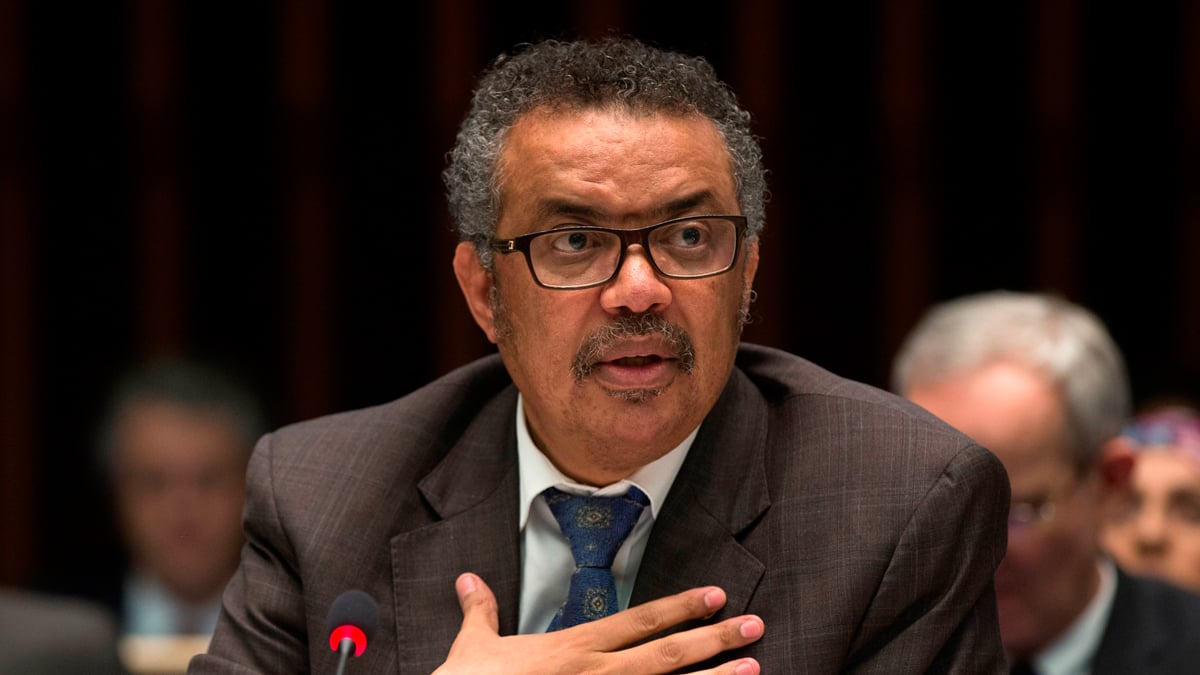Prime
TRIPs agreement: A slap in the face for Pharmaceutical manufacturing firms

Tablets on a table. Countries are struggling to recover from the ongoing effects of the Covid-19 pandemic which could have been cured with the Trade Related Aspects of Intellectual Property Rights (TRIPS) waiver. PHOTO/ ISAAC KASAMANI
What you need to know:
The refusal of rich member countries - which are home to big pharmaceutical industries - to allow poor countries to manufacture their own generic drugs will affect the manufacturing industry in LDCs.
Efforts by Least Developed Countries (LDCs), including Uganda, didn’t yield the expected outcome after some of the World Trade Organisation (WTO) rich member countries - which are home to big pharmaceutical industries - refused to grant an unconditional waiver beyond the next five years for LDCs to manufacture generic drugs, including the Covid-19 vaccines, Prosper Magazine has established.

A woman takes medicine. Uganda is now looking at value addition and import substitution to address pressing economic challenges. PHOTO/Courtesy
After about two years of passionate negotiations, WTO member states finally agreed on a deal, although “highly restrictive”, to waive patents and related intellectual property rights on Covid-19 vaccines for five years.
The original proposal, which was, however, substituted with what trade development analysts refer to as “a patent waiver that never was” sought a full waiver of protections on patents, trade secrets, copyrights and industrial designs on not only vaccines, but also on diagnostics and therapeutics.
According to some of the country’s negotiators at the Trade Ministry, the biggest disappointment being felt by mainly Uganda and her LDC peers, stems from the refusal, instigated by some of the wealthy member countries, to grant all WTO member countries an unconditional waiver to manufacture vaccines at a time when globally, countries are struggling to recover from the ongoing effects of the Covid-19 pandemic which could have been cured with the Trade Related Aspects of Intellectual Property Rights (TRIPS) waiver.
In an interview with several trade policy analysts, investment treaty experts and public health specialists, it emerged that the outcome of the WTO high level meeting, majorly influenced by the wish of the developed countries, will as a result have far-reaching implications on the growth of manufacturing industry, mainly in LDCs like Uganda which is now looking at value addition and import substitution to address pressing economic challenges such as unemployment, inflationary pressures and the dependence syndrome.
Following a week of negotiations in Geneva, Switzerland, the MC12 also resulted into a new WTO agreement on “disciplining” fisheries subsidies; a renewed moratorium on electronic transmissions; commitment to work towards the reform of the WTO, to improve all its functions; an exemption from export restrictions for World Food Programme (WFP) food purchases; and declarations on responding to pandemics and food crisises.
While analysing, the outcomes of the MC12, Southern and Eastern Africa Trade Information and Negotiations Institute (SEATINI), an organisation that works to promote pro development trade, noted that the decisions made in the one week conference are important and impact African countries’ competitiveness, industrialisation and efforts to achieve structural transformation. The issues agreed upon also have direct implications on Micro, Small and Medium Enterprises (MSMES) by hindering their competitiveness, and keeping them stagnated at the local and regional market like the Agreement on the Moratorium on Electronic Commerce—temporary prohibition of taxing e-commerce.
Decision on TRIPS waiver
Importantly, the first on the chopping board is the pharmaceutical industry. For starters, while Uganda’s pharmaceutical industry is still at infancy, it has been on an upward trajectory in the last two decades. The pharmaceutical sector in Uganda has since evolved over the last 15 years from two large manufacturing plants registered in the mid-1990s to 15 companies of varying sizes, many of which mostly manufacture generic drugs.

Tablets on a table. Countries are struggling to recover from the ongoing effects of the Covid-19 pandemic which could have been cured with the Trade Related Aspects of Intellectual Property Rights (TRIPS) waiver. PHOTO/ ISAAC KASAMANI
Armed with the Trade-Related Aspects of Intellectual Property Rights (TRIPS), which is an international legal agreement between all the member nations of the World Trade Organisation, the wealthy member nations are still using the agreement to create and consolidate monopolies that naturally limit production and inflate prices at the expense of LDCs such as Uganda.
The main concern during the Negotiations was on paragraph 8 of the text to extend the decision to cover the production and supply of Covid-19 diagnostics (finding suspected disease) and therapeutics.
This was not agreed and the decision does not extend to the Covid-19 diagnostics and therapeutics. However, the decision states that members will decide within the next six months whether to include the diagnostics and therapeutics in the decision.
Experts’ view
In an interview with HEPS-Uganda executive director, Mr Kenneth Mwehoge, the outcomes of the 12th ministerial conference have potential to hurt pharmaceutical industry and by extension, the economy whose population currently still needs unrestricted access to generic drugs including the right to manufacture vaccines for as long as the pandemic remains a threat.
“These [TRIPS] are the ones that permit us to produce or import generic medicines. What was critical this time in the ministerial conference was about granting unconditional waiver for production of Covid-19 related prevention and treatment drugs, particularly the vaccines, but we didn’t get what we wanted,” he said.
He continued: “LDC s and Uganda were pushing for an unconditional waiver for production of these generic vaccines. But we saw a lot of resistance mainly from European countries, such as Britain, and Switzerland. They were against providing an unconditional waiver for production of these products.”
Uganda was backing the application by South Africa and India who filed an unconditional waiver to produce these generic vaccines with a view to make them accessible to the LDCs including Uganda who import more than 90 of their drugs from India. To produce these drugs here, “we must have a law that permits us to do so or import them as a low developing country.”
“This could affect the country’s Vaccine development initiatives and even local pharmaceutical companies that manufacture generic drugs here. This is because without those flexibilities, they are not able to produce those generic medicines beyond the two year-waiver agreed upon,” Mr Mwehoge said in an interview.
Currently, the country is developing a Covid-19 vaccine. With the refusal to grant the unconditional waiver, thanks to TRIPS, going forward, manufacturing of generic Covid-19 vaccines and, by extension generic drugs, could be impacted.
Although the Minister of Science, Technology and Innovation, Dr Monica Musenero, told Daily Monitor after attending the Uganda Manufacturers Association press conference recently, that the development at WTO ministerial conference will not halt the agenda of the project.
She said: “The WTO doesn’t hinder or affect the country’s project to develop her vaccine. We are on course and that decision doesn’t affect our innovation.”
In an expert analysis authored by Ms Brenda Akankunda, a trade policy analyst, the outcome of the WTO 12th ministerial conference has further implications on technology transfer particularly in the manufacture of essential health products (EHPs)which remains one of the critical enablers of local production.
She noted that Eastern and Southern African (ESA) countries have, over the past two years, intensified global demand for constraints to access of key health technologies to be addressed while the Covid-19 pandemic still puts their populations at risk, including at the World Trade Organisation (WTO).
“The WTO TRIPS waiver was a critical step in enabling vaccine manufacturing in developing countries and Africa in particular. However, the declaration was not extended to therapeutics for the production and supply of the products to combat the Covid-19 pandemic which leaves most African countries heavily dependent on developed countries,” she argues.
“Big pharmaceutical companies are hesitant to waive intellectual property rights on their vaccines as they argue over the financial implication. This explains their hesitance to share the technology at no cost,” she said.
Despite her critical analysis, Ms Akankunda believes that TRIPS is a double-edged sword. She argues that the current TRIPS waiver is a step towards boosting the local manufacturing and production which will address Uganda’s longstanding dilemma.
There is hope that this can be extended to address the effective medicines for neglected tropical diseases as well which are still not being attended to.
Ms Brenda Akankunda, a trade, investment and treaty analyst, noted that although the WTO decision means Uganda cannot manufacture generic versions of the existing Covid-19 vaccines, there is still room for engagement. But before that, Uganda and her LDC peers should address her capacity gaps.
The 12th ministerial conference didn’t address issues of Investment Facilitation Agreement and also side stepped issues relating to moratorium on electronic commerce, preferring to extend it to the next ministerial conference which is two years away.
Player’s perspective
Pursuant to the Doha Declaration on TRIPS and Public Health, a separate transition period exists for pharmaceutical patents, which currently runs until January 1, 2033, says Mr Ajay Kumar Pal, the chief executive officer of Cipla Quality Chemical Industries, a pharmaceutical manufacturing company in Uganda.
Speaking last week at their product diversification strategy, he noted that one of their products will fall under the WTO TRIPS arrangement.
“We are going to begin producing one item this year in Uganda under the Trips arrangement because it is one of the nine new products we are going to start producing,” he said.
Mr Ajay said TRIPS agreement is widely used in the US and Europe because it offers some exceptions on patented medicines.





